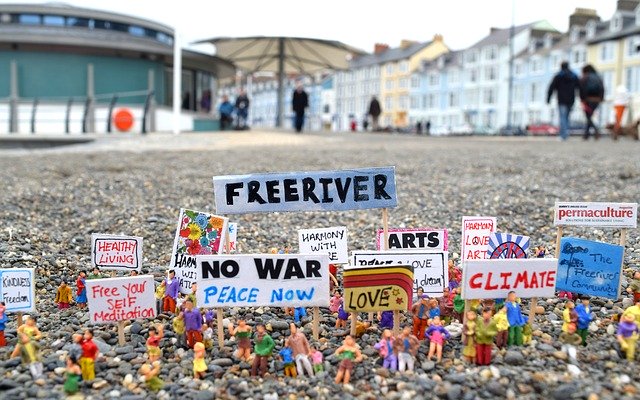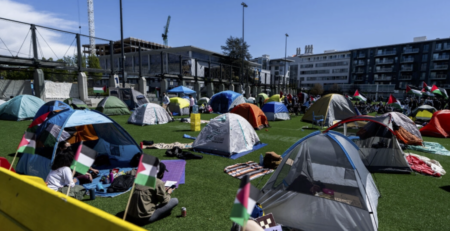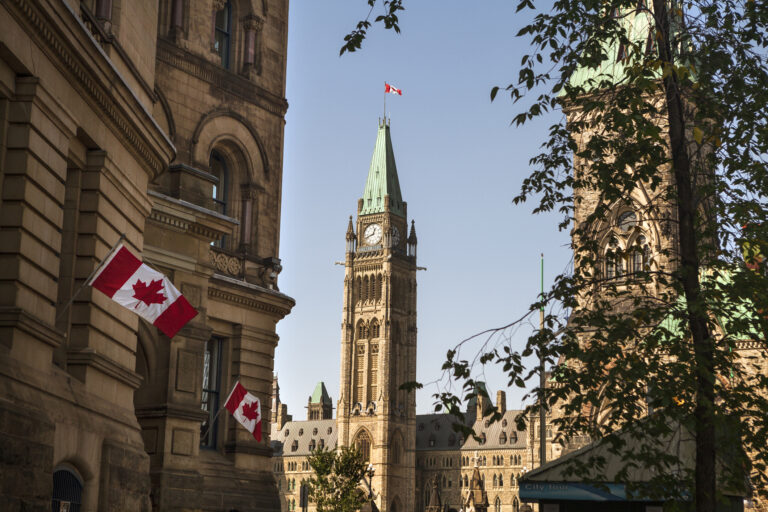by John Carpay, Globe and Mail, January 15, 2020
The Alberta Court of Appeal has ruled against the University of Alberta for charging a $17,500 security fee to a small student pro-life club in 2016. This is a clear victory for free speech on campus, no matter how unpopular the opinion being expressed – and other universities should take note.
In March, 2015, the University of Alberta condoned the behaviour of a group of students that physically obstructed a peaceful, stationary pro-life display on campus. They used sheets, towels, banners and megaphones, making it impossible for passersby to view the signs, effectively silencing intellectual discussion and inquiry at a university-approved event, in violation of the university’s code of student behaviour.
This occurred despite the university’s president stating publicly in advance that pro-life students were entitled to express their opinions on campus. Then-president Indira Samarasekera asserted that the university must facilitate and protect the peaceful expression of all views, regardless of popularity.
Dr. Samarasekera’s statement was ignored by campus security and by the disruptive students. Security officers repeatedly told the obstructing mob that they were violating the code of student behaviour, which expressly prohibits interrupting and obstructing university-related activities and events. Yet campus security took no action to stop the obstruction, or to discipline the students who identified themselves on social media and boasted about their success in silencing a message they disagreed with.
In 2016, the campus club UAlberta Pro-Life applied again for a two-day stationary display on campus. Rather than punish the self-identified and self-confessed rule-breakers who obstructed the display in 2015, the university instead told the small pro-life club that their display would require $17,500 to be paid in security fees. Unable to pay, the students were forced to cancel the planned event.
In issuing this exorbitant $17,500 demand, the University of Alberta ignored the fact that any potential threat to safety and security came uniquely from those who physically obstructed and blockaded a university-approved event. The pro-life students sought to exercise their legal rights to express their opinions in a peaceful manner, and did not threaten anyone’s safety or security.
The court was unanimous in noting the counter-majoritarian nature of freedom of expression, as explained by the Supreme Court of Canada in Irwin Toy Ltd. v. Quebec (Attorney-General), 1989 CanLII 87 (SCC): “Freedom of expression was entrenched in our Constitution and is guaranteed … so as to ensure that everyone can manifest their thoughts, opinions, beliefs, indeed all expressions of the heart and mind, however unpopular, distasteful or contrary to the mainstream.”
Justice Jack Watson ruled that a university campus “should be hospitable to a pursuit of the truth about all things without a prescribed predefinition of truth before the pursuit begins. That is particularly so for open areas where students, faculty and visitors mingle.” He referred to the university’s motto of “Quaecumque vera” or “whatsoever things are true,” literally carved in concrete on the campus.
Justices Michelle Crighton and Peter Martin concurred with Justice Watson in ruling that the Canadian Charter of Rights and Freedoms applies to universities when they regulate students’ expression on campus. The court held unanimously that this is a form of government action because the education of students, largely by means of free expression, is the core purpose of the university, and a responsibility given to the university by government since 1867.
The court noted that the university’s grounds are physically designed to ensure each student can learn, debate and share ideas in a community space; infrastructure and land holdings are designed to permit interaction, assemblies and the ancient characteristics of educational exchange.
Further, the court held that students exercising their Charter-protected free expression rights on campus do not threaten the ability of the university to uphold academic standards, to manage its facilities and resources, or to maintain its independence.
In the past two decades, many universities across Canada have been using security fees to stifle free expression. When applied against those who seek only to express their opinions peacefully, security fees empower mob censorship, assisting those who seek to silence their opponents rather than engage in intellectual debate.
This court ruling is a victory for campus free speech and a clear message that Canadian universities should stop using security fees to stifle peaceful but unpopular expression.
John Carpay is president of the Calgary-based Justice Centre for Constitutional Freedoms, which represented the students in their successful court action against the University of Alberta.









